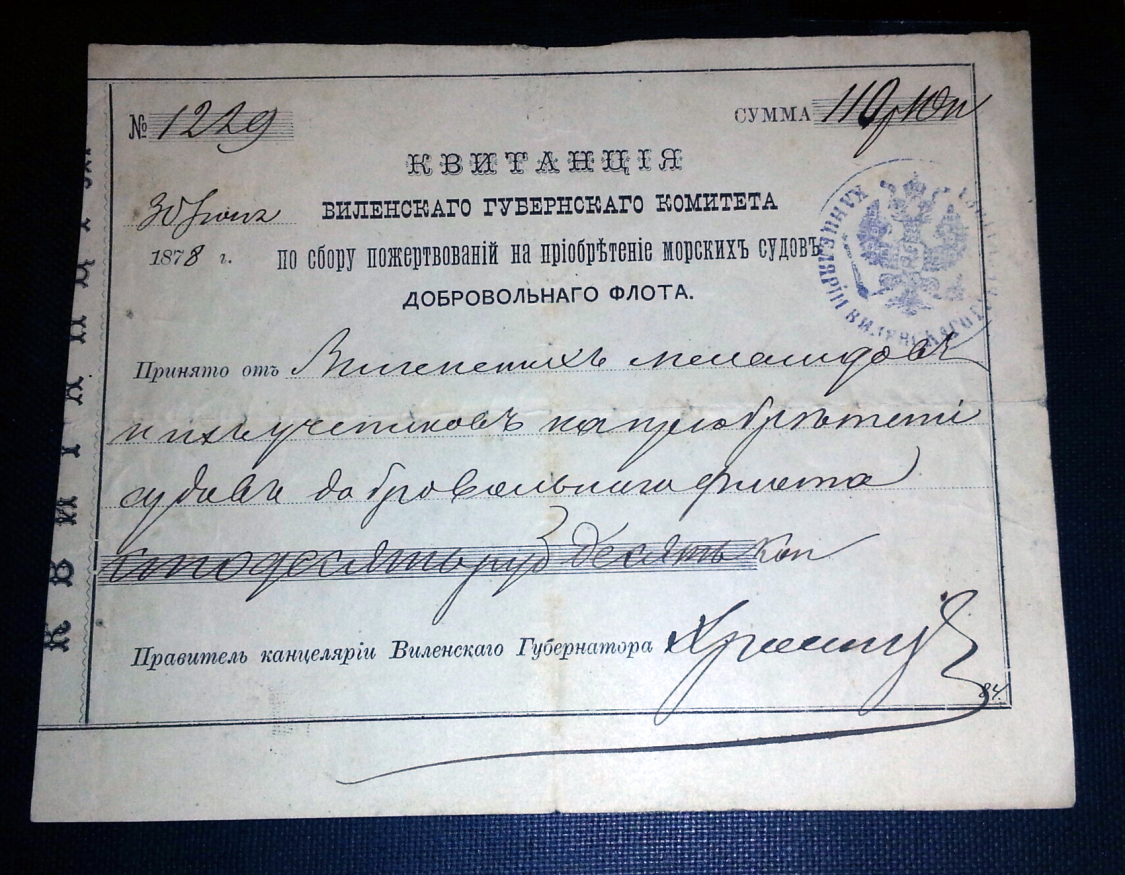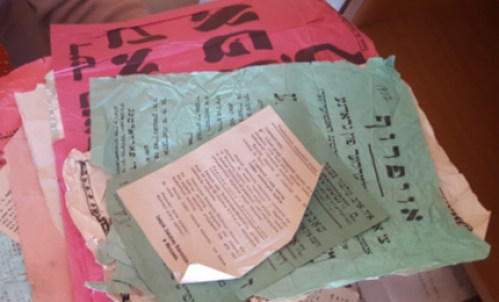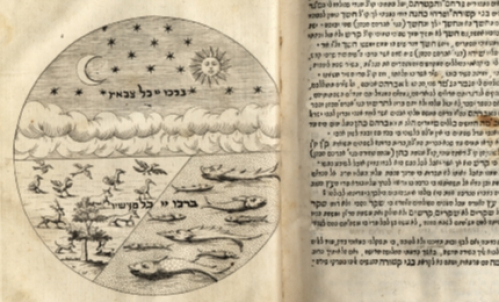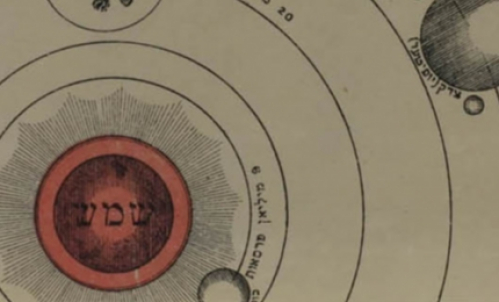A Boat for the Tsar’s Fleet
by ROBERTA NEWMAN
Most archivists would agree that working with primary sources is a humbling experience. On the one hand, there is a sense of privilege about getting to work with the raw materials of history. Sometimes you are hyper-aware that you are handling artifacts from the almost mythic past, some of them created by people you’ve actually read about in history books. On the other hand, there is the constant sense that we really don’t know all that much about the past, after all. Open up a gray archival box and you encounter odd corners of history that no one has written about, no one can even adequately explain.
This piece of evidence of Jewish participation in Russian society caught the eye of YIVO Vilna Collections archivist Yakov Sklar. It is a receipt for a donation of 110 rubles and 10 kopeks by “the Vilna melamdim [teachers]” to a fund to purchase boats for a tsarist “volunteer naval fleet.” It was issued by a Vilna District Committee set up to fundraise for this purpose and is signed and stamped by the office of the Vilna Governor.

What was the volunteer fleet? Who were the “Vilna melamdim”? Did they make their donation voluntarily or was the “donation” really a tax that they were compelled to pony up?
The document dates from 1878, reign of Tsar Alexander II (1855–1881), who was seen as particularly liberal by Jews. He promoted the integration of Jews into the Russian civil society and expanded their civil rights. During his tenure, Jewish hopes for full emancipation were high and Jews found easier pathways to acculturation. A Russian-speaking Jewish middle class arose and Jews entered Russian schools and universities in larger numbers.
Were the Vilna melamdim Russian patriots, caught up in the liberal atmosphere of the times? Or were they oppressed tsarist subjects grudgingly appeasing the authorities with their “donation”? We don’t know but perhaps a scholar will come forward one day to explain. As CUNY Professor of Political Science Jack Jacobs noted in a letter supporting YIVO’s successful funding application to the National Endowment for the Humanities , “The size and the depth of the YIVO’s prewar collection make me quite certain that the materials which have already been examined and analyzed by scholars are no more than the tip of the iceberg.”
As YIVO prepares to digitize the Vilna Collections, its archivists have an unprecedented opportunity to refine the organization of the collections that were assembled in the first few decades after its receipt of the materials that were looted by the Nazis during World War II. This item and many others will eventually be integrated into an appropriate record group, get cataloged, undergo a conservation review, and get digitized.
Roberta Newman is YIVO’s Director of Digital Initiatives.



